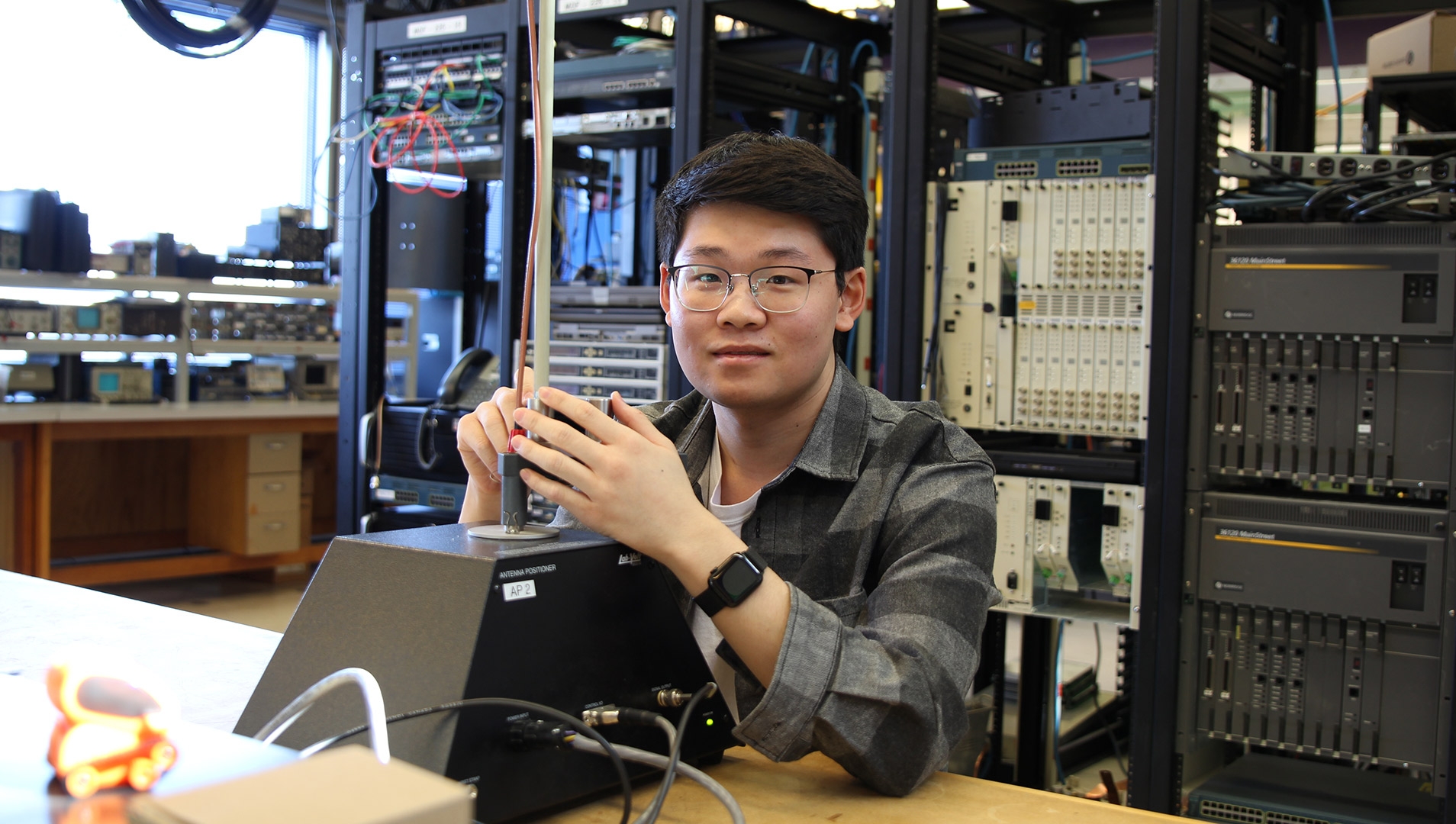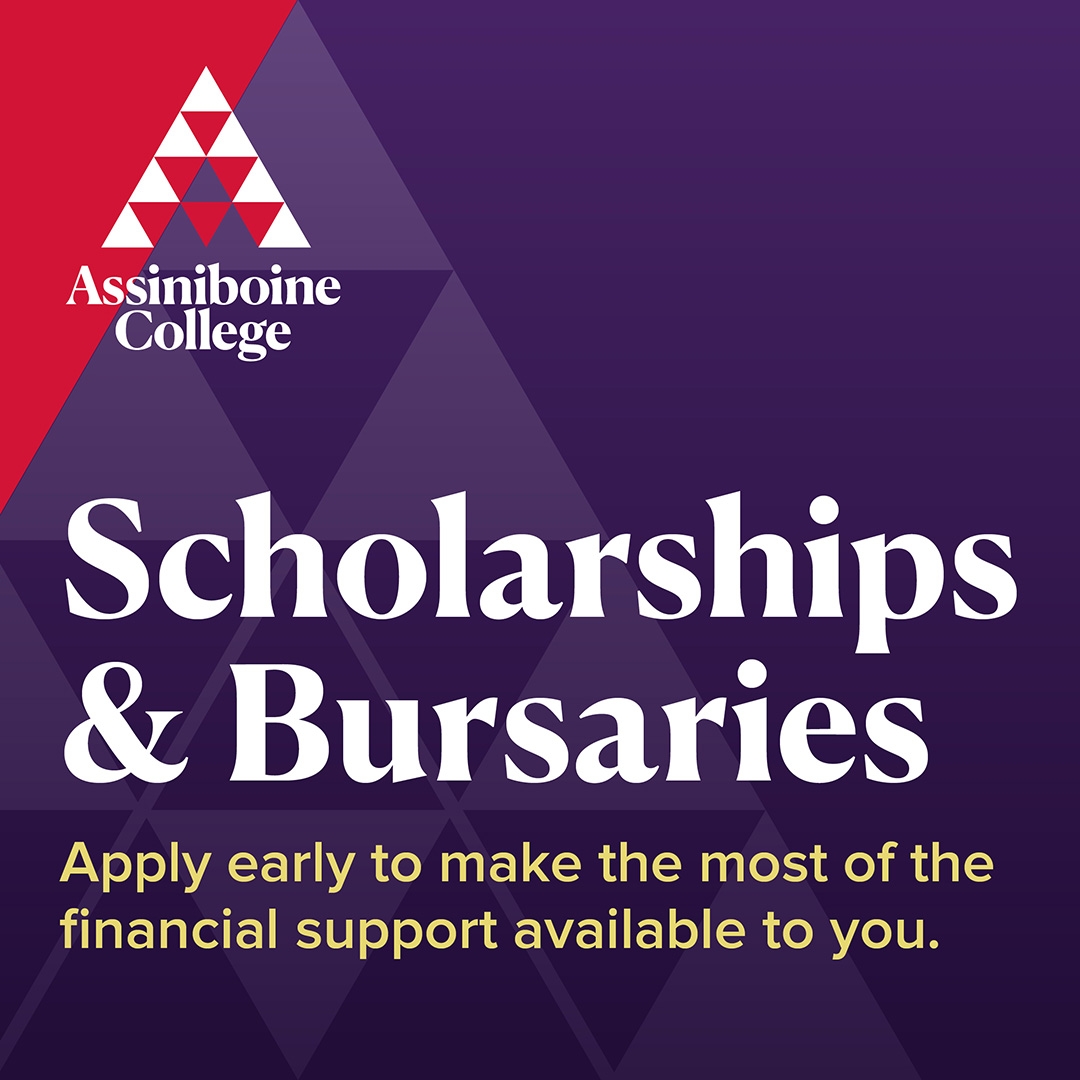Communications Engineering Technology
Overview
No future intakes planned
We are not currently accepting applications as there will not be a new intake of Communications Engineering Technology.
Interested in exploring other program options? Contact [email protected].
Assiniboine’s two-year Communications Engineering Technology diploma provides graduates with the skills to create, manufacture, install and analyze different types of communication technologies. Graduates are prepared to support the design, development and repair of communication systems, such as voice, video, data, fiber optics, wi-fi and Bluetooth.
Graduates are prepared for careers as engineering technologists in the communications industry in areas such as computer-aided design, electronic design and repair, computer programming, network design, communication systems installation or design or project management.
The program culminates with students partnering with an industry representative to work through a problem identified by industry, bringing real world practical experience to the student and strengthening their networks for future career opportunities.
With two years of technical experience, graduates may pursue certification with The Certified Technicians & Technologists Association of Manitoba.
Graduates are employed by electrical utilities, communications companies, manufacturers of electrical and electronic equipment, consulting firms, and in governments and a wide range of manufacturing, processing and transportation industries.
Program Learning Outcomes
- Analyze, interpret, modify, design and produce electrical and electronics drawings, layouts and reports.
- Analyze and solve technical problems related to electronics engineering by applying principles of advanced mathematics and science.
- Apply appropriate troubleshooting techniques to electronic circuits or systems and generate and perform test procedures.
- Design, build, test and troubleshoot electronic circuits, equipment, systems and subsystems in accordance with job requirements, functional specifications and relevant standards.
- Modify, maintain, repair and recommend electronic equipment and systems in accordance with relevant operational guidelines.
- Determine, select, recommend and justify the purchase of electronic equipment, components and systems in accordance with code, standards and job requirements and functional specifications.
- Design, modify, analyze and troubleshoot logic and digital circuits, and embedded microprocessor-based and microcontroller-based systems, including assembly and high-level language programs.
- Design, analyze and troubleshoot circuits consisting of passive components by applying appropriate measurement techniques.
- Design, analyze and troubleshoot circuits consisting of low power, high power, active and electromechanical components, and analog integrated circuits.
- Design, analyze and troubleshoot control systems.
- Design, analyze, troubleshoot and repair analog and digital communication systems.
- Apply relevant shop practices in compliance with safety policies and current regulations for electronics engineering workplaces.
- Collaborate in selecting, co-ordinating and conducting quality control and quality assurance programs and procedures.
- Complete work in compliance with relevant legislation, established standards, policies, procedures and regulations, and ethical principles.
- Contribute to the planning, implementation, management and evaluation of team projects by applying project management principles.
Examples of what communication engineering technician graduates can do:
- Assist in the design, development and testing of electrical and electronic components, equipment, and systems.
- Assist in inspection, testing, adjusting and evaluation of incoming electrical, electro-mechanical and electronic components and assemblies to ensure conformance with product specifications and tolerances
- Assist in building and testing prototypes to specifications.
- Installation of cable and fiber optic commercial and household systems.
- Carry out a limited range of technical functions in support of research in electrical and electronic engineering and physics.
- Install, operate and maintain electrical and electronic equipment and systems.
- Calibrate electrical or electronic equipment and instruments according to technical manuals and written instructions.
Success Factors
You might be a good fit for this program if you have:
- An interest in circuitry, electrical systems, and electronic components
- Strong attention to detail
- Solving complex problems that require analytical thinking and troubleshooting abilities
- Enjoy learning how electronic components and systems work
- Are curious about wireless communications, the use of sensors and how communication systems are integrated into most everything we use today.
- Have heard about the Internet of Things (IoT) and would like to understand more about it
- Enjoy building electronic devices, soldering, wiring, and the development of robotic features.
The industry and program environment often requires individuals to:
- Adhere to safety protocols and promote a safe working environment
- Be adaptable to changes and have a willingness to learn and update knowledge
- Be meticulous, employ patience and pay close attention to details
- Convey technical information clearly, document procedures, and explain complex concepts in a concise and understandable manner
- Work as part of a team
- Enjoy working with computers
Interested in exploring similar program options?
We've got you covered! Here's another great program option to consider.
Admissions
Admission Requirements
- A complete Manitoba Grade 12 or equivalent
- English 40G/40S or equivalent
- Pre-calculus or Applied Mathematics 40S or equivalent
Applicants who have Mathematics 40G, Mathematics 301 or Consumer/ Essential Mathematics 40S will be required to write a mathematics assessment test to assess their eligibility for admission.
If you received your education outside of Manitoba, please review the equivalent admission requirements: Interprovincial or International.
English is the language of instruction at Assiniboine. All applicants educated outside of Canada or in a country not on the test exempt list are expected to meet the English language proficiency requirements.
Applications Closed
We are not currently accepting applications as there will not be an intake of Communications Engineering Technology in September 2024.
Interested in exploring other program options? Contact [email protected].
Careers & Connections
Career Opportunities
- Computer-aided design
- Remote control technology
- Wireless and fiber optics
- Imbedded programming
- Electronic design and repair
- Computer programming
- Network design
- Communication systems installation
- Project management
Additionally, you may gain real-world experience by participating in applied research projects. Assiniboine is an academic partner with TRLABS, the largest ICT Research and Development consortium in Canada. Assiniboine also offers this program accredited by the Canadian Forces for the Navy Subsidized Education Plan (NSEP) program. After being accepted into our program, you can apply to join the Navy and take your Naval Electronic Technician training with us for two years.
For more details contact the local Canadian Forces recruiting office or visit www.forces.ca.
Connections
Assiniboine has a number of agreements with other colleges, universities and professional organizations, making it possible to apply credit taken at Assiniboine to programs at other institutions. For information on agreements, see Articulation Agreements.
Tools & Supplies
Lectures and design classes are done in our modern classroom/labs. All are equipped with high-end computers running demanding industry-standard simulation and design software.
Once students have worked through theory and simulations, they will experiment with different technologies and software during the lab assignments in our newly established Communications lab. Students are provided with an ID card and have 24/7 access to this facility. Alumni of the program may also make arrangements to use this facility for upgrading or collaboration with current students on design and research projects. Students do their computer network and routing training in the Cisco Network Academy Lab using CCNA curriculum that we are licensed to deliver through our partnerships with Cisco Systems Inc.
The program uses project-based learning throughout most of its courses. These projects align with real-world situations. During these assignments, students will start to develop their soft skills such as; communications, project management and teamwork. Through the Assiniboine IEEE Student Branch, students are also encouraged to participate in national design challenges and other collaboration projects outside of the classroom.
The highlight of this program is the Applied Research Project course. For this course, students will develop and demonstrate their skills by designing, prototyping and testing a communications solution. This capstone project is developed over the final 4 months of the program and may include hardware design, programming and system integration. These industry-driven and sponsored projects provide our grads with the skills and confidence needed to enter the fast-paced field of information and communications technology (ICT).
Our classrooms, labs and shops are equipped with the necessary equipment that you need to make the most of your experience. However, there are some tools and supplies that you will need to purchase for personal use to help you with your studies. Much of what you purchase you’ll be able to use after you graduate and begin your career. Tool and supply lists are available from the school office 30 days prior to the start date of the program.
Program Checklists, Textbooks, and Supplies
Assiniboine Bookstore
Textbooks, supplies and uniforms may be purchased at the Assiniboine Bookstore at the Victoria Avenue East Campus. Booklists, tool lists and supply lists are available from your school office 30 days prior to the start date of your program.
Technology Requirements
Students in this program are loaned a laptop for use in this program. Students will use this laptop to complete their coursework and are responsible for the condition of the device when it is returned at the end of the spring term. See Technology Requirements for detailed information.
Frequently Asked Questions
When is the next program information session?
Program information sessions are completely free to attend, and we invite you to bring a guest along as well. It's a good idea to register in advance so we know you're coming.
To find the complete schedule for our program information sessions and to RSVP, visit the program information session page.




